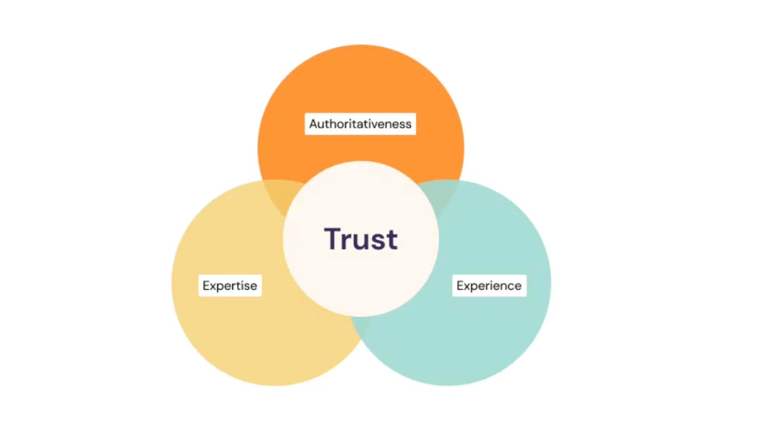EEAT It. Just EEAT It.
Did you know: Google uses EEAT to assess a website's quality and content.
SEO/EEAT


I was talking with a recruiter the other day, and he asked what EEAT was and why I had it on my resume. EEAT as a concept has been floating around for a while but was introduced by Google in 2022 as part of their update to the Search Quality Guidelines. The acronym may be new-ish and unfamiliar, but the concepts behind EEAT are important to most anyone who publishes on the web – they just might not know it yet.
EEAT is a set of criteria that Google uses to evaluate the quality of content. Content that is high in EEAT is more likely to rank higher in Google search results. But what does it mean?
Breaking EEAT Down
To understand EEAT, you first need to know what it really means. Acronyms, amiright?
Experience: How much do you know about the topic? Do you have formal training or education in the area? How long have you been working in the field?
Expertise: Can you communicate the knowledge in a clear and concise way? Can you explain complex concepts in a way that is easy to understand?
Authoritativeness: Are you a subject matter expert? Do you have a good reputation in the industry or field? Have you published other works on the topic?
Trustworthiness: Can you be trusted to provide accurate and reliable information? Are you a consistent go-to resource for information on the topic. This is considered the most important part of the EEAT equation.
Make EEAT Work for You
How can you create impactful EEAT content? Here are a few tips:
Write about what you know and have experienced. This will come across in your writing and make your content more credible.
Be clear, concise, and easy to understand. Use simple language and avoid jargon.
Back up any claims with evidence from credible sources. This shows that you have done your research and that your content is accurate.
Use high-quality visuals and images to support the content. This will make your content more engaging and visually appealing.
Promote the content on social media and other channels. Get the word out about your great content so that more people can see it!
Rethink using AI. AI models are trained on large datasets of text and tend to simply rehash what’s already been created. They can also be highly inaccurate and even biased. Also, AI can’t quite capture language nuances. Plus, AI written text simply feels… fake.
Creating EEAT content can be a time-consuming and challenging process, but the benefits are worth it in the long run. High-quality, impactful content that meets Google's EEAT criteria can improve your chances (or your client or company’s chances) of ranking higher in search results and attracting more visitors to your website. That’s always a win!
Have something to say? Contact me!